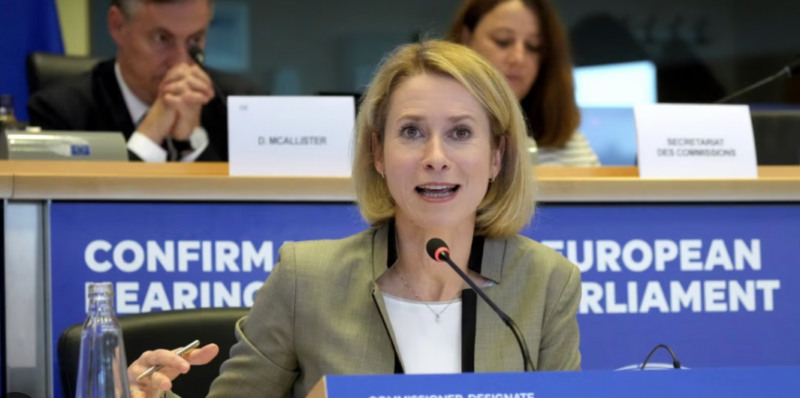U.S. Secretary of State Marco Rubio abruptly canceled a scheduled meeting with the EU’s High Representative, Kaja Kallas, forcing her to rearrange her plans and settle for discussions with lower-ranking officials instead.
Kallas’ team had publicly confirmed the meeting, emphasizing that she and Rubio would address the war in Ukraine and transatlantic relations. On February 24, Kallas reaffirmed her commitment to engaging with the new U.S. administration.
“I’ll be traveling to the U.S. tomorrow to meet with Marco Rubio and others to discuss these crucial issues,” she stated, underscoring the significance of the talks. She also stressed that Ukraine and the EU must have a seat at any peace negotiations.
“There can be no deal without us—without Ukraine, without Europe. The U.S. needs to work with us,” she insisted.
Beyond Ukraine, Kallas aimed to tackle pressing global matters, including the crisis in the Democratic Republic of the Congo, sanctions on Syria, and the situation in Israel.
“It’s going to be a packed day, and I’m looking forward to it,” she said optimistically.
However, after she departed for Washington, Rubio’s team cited “scheduling issues,” effectively dropping the meeting. Notably, his public calendar for February 26 showed a light agenda, listing only a White House Cabinet meeting at 11 a.m.
Following the abrupt change, Kallas’ team scrambled to adjust her itinerary. “Over the next two days, she’ll be meeting with U.S. Senators and members of Congress to discuss Russia’s war against Ukraine and transatlantic relations,” they announced.
She is also set to engage with EU Delegation staff in the U.S. and speak at a public event at the Hudson Institute.
Earlier, the EU’s top diplomat had criticized President Donald Trump’s dealings with the Kremlin, warning that the U.S. was conceding too much to Russia, likening it to appeasement. Some analysts suggested that by favoring bilateral talks, Washington could engage allies on its own terms rather than navigate the EU’s slow-moving consensus-driven system.




